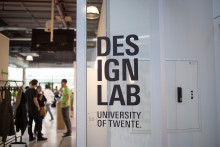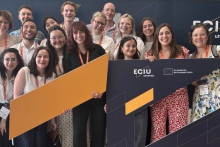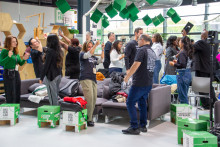The ‘creative marathon’ will begin on Friday and last until Monday. Parallel to the Creathon sessions, a workshop targeted at professionals will take place. The event aims to bring together international and multidisciplinary teams to find out-of-the-box solutions to societal problems using data. More specifically, the participants will be developing concrete solutions to challenges submitted by the various ECIU partners, including the University of Twente.
‘All the six challenges they will be working on are related to regional development,’ explains one of the DesignLab organisers Athina Kapousouz. ‘For example, the challenge submitted by the region of Twente focuses on using data to find out why students drop out of school and how we could support them. Stavanger submitted a challenge to improve services for young families and Hamburg would like input on how to become an innovation hub.’
The participants will be coming to the event from Stavanger (Norway), Linkoping (Sweden), Aalborg (Denmark), Hamburg (Germany) and several regions of the Netherlands. They include not only students from ECIU universities, but also professors, professionals and high school students. The teams will have the whole weekend to produce innovative ideas. They will present them on Sunday afternoon during a public closing ceremony starting at 15:30. There the public will be able to vote for their favourite, and have a say in who goes home a winner.
Winning a prize is not the main goal of the ECIU Creathon, though. As Kapousouz says: ‘The main goal is to have fun, to network, to be creative and work on real issues. All the ideas will be presented to the challenge owners and if they use them, the participants can be involved in the implementation. That is what this all about in the end: trying to help society.’







